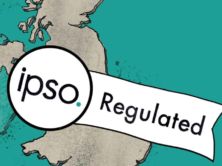FrenchLeaks launched this week. (Credit:FrenchLeaks.Fr)
In the past week, at least two new leak publication sites have launched.
In France, FrenchLeaks has launched. FrenchLeaks is “a website dedicated to the publication of information of public interest which would otherwise remain hidden” and backed by the journal Mediapart, EditorsWebLog reported.
MediaPart announced FrenchLeaks’s launch on March 10.
“Our new site, named with an amicable nod to WikiLeaks with which Mediapart is a new media partner, is a tool for widening public access to information in France. Its guiding objective is quite simply to re-establish the principle of the right of access to information that is of public interest, a right which is all too often abused by those in a position of power, whether political or economic.”
The site describes itself as a “whistle-blowing site” and “a site of journalism” claiming to promise “total protection of sources.”
FrenchLeaks published in its launch what it calls “several important Mediapart investigations, concerning the Karachi affair, the so called ‘Butler tapes’ recordings (click audio, right) that sparked the L’Oréal-Bettencourt scandal, along with numerous confidential documents that Mediapart has gained access to in its exclusive investigations into the French banking world and the Bolloré group.”
MediaPart is also one of WikiLeaks’ “new media partners,” which MediaPart announced in mid-February.
“Mediapart is now one of several new partners with access to the cables, following an agreement reached on January 31st between WikiLeaks founder Julian Assange and Mediapart’s Editor-in-Chief Edwy Plenel and Editor François Bonnet.
According to the announcement, Mediapart is “sifting through the documents in its possession, and the publication of resulting investigations will begin on this website soon.”
“The second stage that Assange is now preparing is expected to be that of a deeper treatment of the cables, making them more intelligible and instructive, situating them in their geo-political context and allowing them to become the starting point for relevant investigations.”
UniLeaks
iMediaEthics wrote last week about UniLeaks, which calls itself a news site for university leaks. We wrote to UniLeaks to learn more about the organization and heard back from an unidentified member of UniLeaks. According to that person, UniLeaks is “currently working over several releases.”
See our Q & A with UniLeaks below:
iMediaEthics: What motivated the site’s creation?
UniLeaks: Firstly – the success of wikileaks. Secondly, a desire to reshape debate over the shifting nature of education within society more broadly. What role do these institutions play in the social life of our countries and exposing matters we feel are in the general interest of the boarder public.
iMediaEthics: How many people are involved in the site?
UniLeaks: 13 – spread over the globe.
How is the site funded?
UniLeaks: Donations: although we are seriously short of cash. 2 of us have had to quit our job to work full time on reviewing material. What you’ll see is rather than drip feeding – we will prepare multiple releases spanning right across the world. Currently we are working on 6 releases.
QuebecLeaks
And, a Canadian leaking site launched March 9, called QuebecLeaks. However, the Gazette described its launch as an “anticlimactic debut.”
The Gazette reported that “A day after QuébecLeaks was launched with much anticipation and fanfare, the blogosphere was replete with derisive comments about the website’s lack of content.”
CBC News reported that the “only leak in QuebecLeaks launch” was the identity of one of its spokespeople. That person is a former political party, Parti Québécois, volunteer Luc Lefebvre. According to CBC, he “quit the party in frustration” and didn’t leak anything with the launch because “he hadn’t received any documents of interest to release before the launch date.”
PQ “denied all connections to QuebecLeaks.”
And, the site may face legal troubles as Quebec has strict privacy laws. “Quebec has almost an obsession with privacy,” Mark Bantey is quoted by the Gazette as saying. “Privacy laws are very strong here and that’s an issue QuébecLeaks will have to deal with.” Bantey is a media lawyer who represents the Gazette.
Even though the site hasn’t published anything, Quebec information minister Pierre Moreau “has already threatened to sue and press charges against anyone who publishes documents that go beyond the limits prescribed by Quebec law, for example information that is protected for security reasons or that would disrupt the economy.”
In terms of precedent, the Gazette cited a recent Quebec appeals court ruling that decided “it is legal to publish confidential information – as long as it is in the public’s interest.” But, “the issue is how the information was obtained,” according to Bantey.
“QuébecLeaks can’t steal information, but if someone drops off a brown envelope at its office it has a right to publish it if it’s in the public interest.”
Regarding privacy laws, CBC reported that Moreau commented that “the inner workings of the government are accessible to the public, but he said there are reasons why some government documents stay secret under law.
“For instance, the deliberations of the cabinet have to remain secret for 25 years. It could have an impact on the economic situation,” Moreau is quoted as saying.
Montreal Gazette added that Lefebvre explained what QuebecLeaks wants to publish:
“Anybody who has access to documents that might look like there’s some corruption, collusion, something shadowy, something that the people should know, they can submit it.
According to Lefebvre, submissions are “encrypted” to “the main QuebecLeaks servers,” which are in Germany.




